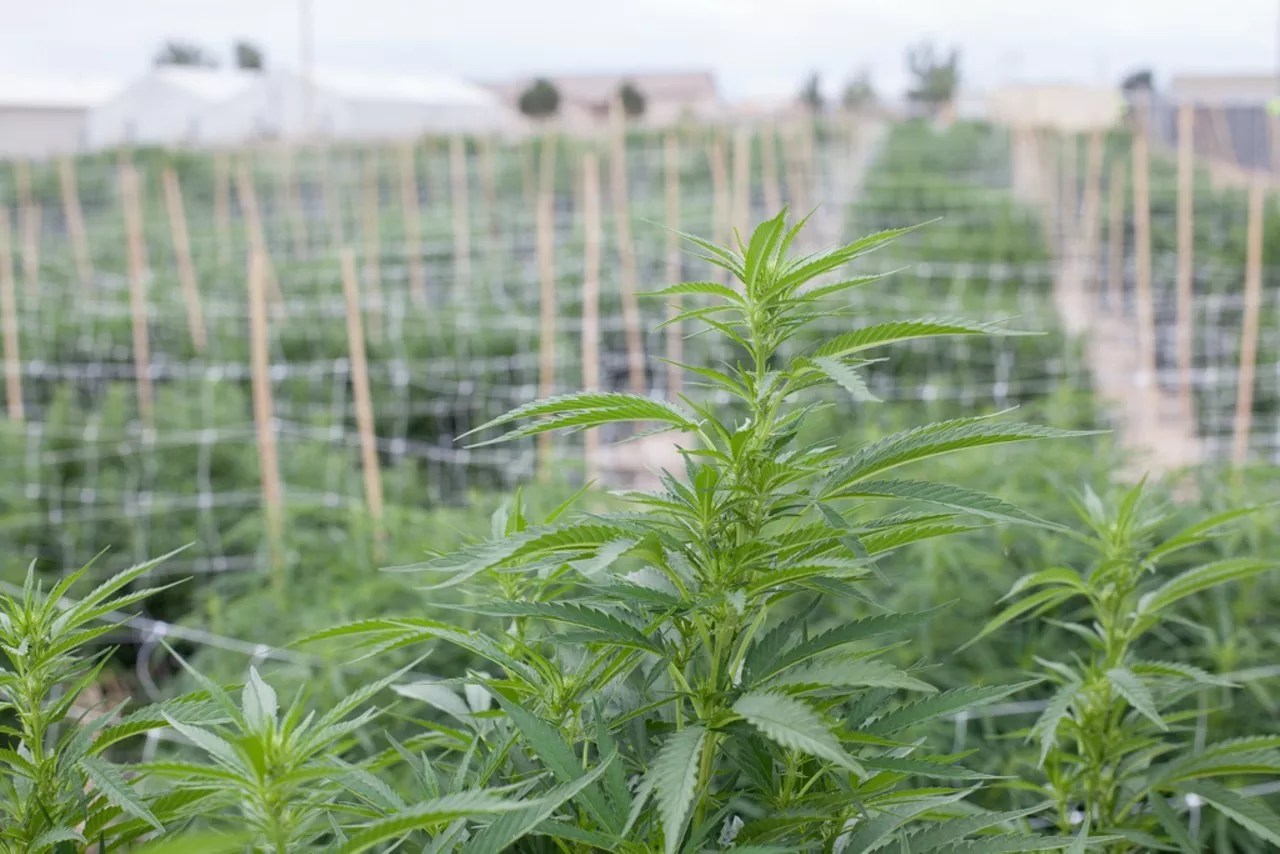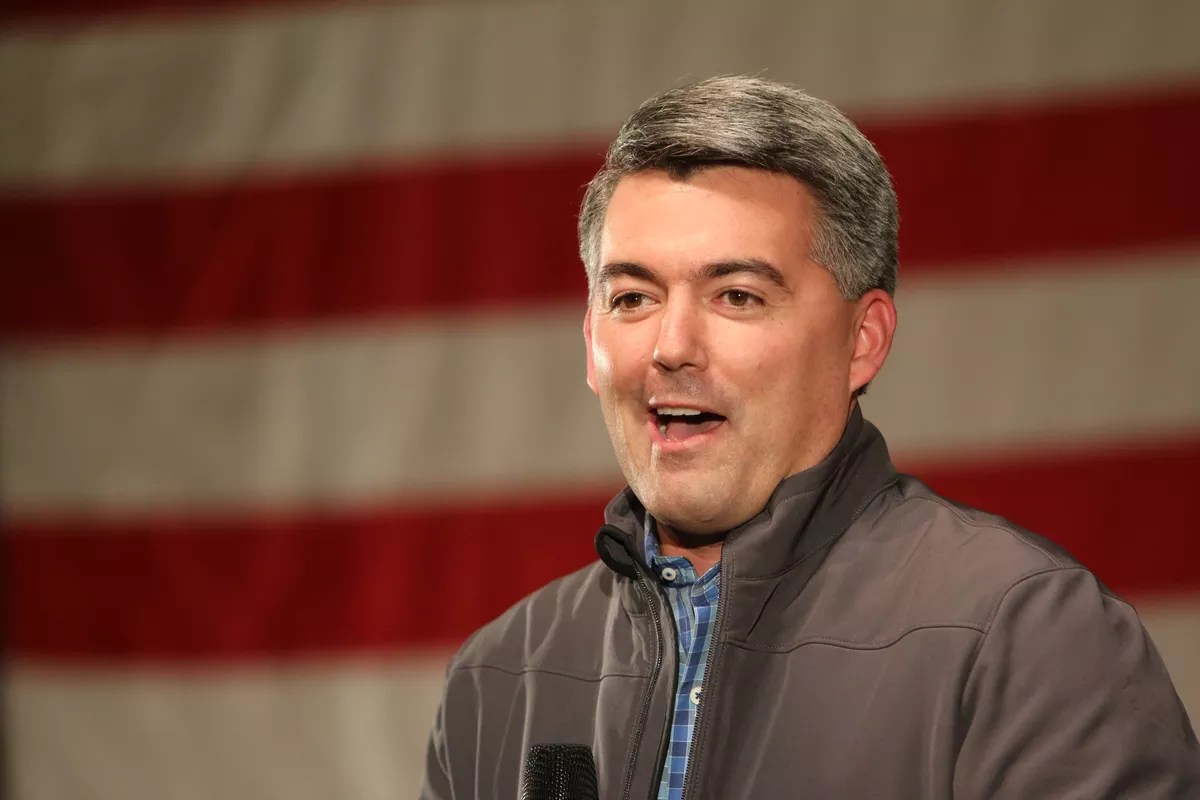
Jacqueline Collins

Audio By Carbonatix
After news broke January 4 that U.S. Attorney General Jeff Sessions planned to rescind the Cole Memorandum and nine years’ worth of other federal cannabis protections, most of Colorado’s legislators publicly came out against the decision that same day. Now they’re starting to turn those words into actions – or more words, at least.
A bipartisan group of Colorado state representatives sent Sessions a letter on Tuesday, January 9, asking him to reverse his revocation of the Cole memo, a 2013 policy that offered protection from federal prosecution for the cultivation, distribution and possession of pot in states where it’s legal. Congressman Mike Coffman, a Republican, and Democratic representatives Diana DeGette, Ed Perlmutter and Jared Polis all signed the joint letter, writing that Sessions’s memo “appears to stand in opposition to President Trump’s publicly stated position” on state-legalized cannabis.
“We represent a state that posed the question of marijuana legalization to its voters not once, but twice,” the letter states. “Voters first approved the use of medical marijuana, and subsequently, our constituents approved its use for adult recreational use. The citizens of Colorado have spoken on this issue. We believe we are obliged to heed their decision. Further, all the laws and regulations put in place governing the use of marijuana in our state clearly restrict it to a matter internal to the state of Colorado.
“We strongly urge the Department to reinstate the Cole Memorandum in order to ensure the Department is acting to uphold the will of Colorado voters and the rights of the states to regulate intrastate commerce.”
Although Sessions has been vocal about his disdain for legalizing cannabis, his memo on January 5 was his first official action against the industry. Sessions, the first U.S. senator to officially endorse Trump during his 2016 campaign, was nominated by the president for the AG position shortly after the election. During his presidential campaign, Trump said he was a “states person” who believed decisions about cannabis regulation “should be up to the states, absolutely.”
Senators Cory Gardner and Michael Bennet issued public disapprovals against the new Sessions Memorandum on January 4, as did state representatives Coffman, DeGette, Perlmutter, Polis and Scott Tipton. That same day, Congressman Ken Buck issued a statement condemning Congress’s lack of action to update federal cannabis laws.

Senator Cory Gardner.
Shutterstock.com/Rich Koele
The Denver Post reported that Gardner put a hold on all five nominees for new executive positions at the United States Department of Justice, over which Sessions presides as AG. The nominees, announced on Monday, January 8, include four potential assistant attorneys general in Virginia and Maryland, as well as a U.S. marshal position in Alabama. Gardner’s office didn’t respond to Westword‘s inquiries about holds, and the DOJ would neither confirm nor deny them.
Gardner had a meeting with Sessions to talk about the memo today, January 10, and issued the following statement to the media afterward: “Earlier today, I met with Attorney General Sessions to further discuss the Justice Department’s decision to rescind current policy on legal marijuana enforcement. I reiterated my concern that states’ rights were being infringed on through this action and we agreed to continue talks. I also hope to expand these discussions with the Justice Department to include several of my Democrat and Republican colleagues about what steps can be taken legislatively to protect Colorado’s rights.”
Polis, who introduced a bill in March 2017 to deschedule marijuana as a federally illegal substance, has been working with Gardner, Perlmutter and DeGette to create a spending-bill amendment to restrict the Justice Department from interfering with Colorado’s legal pot industry. Much like the Rohrabacher-Blumenauer amendment, the provision would block the DOJ from using federal funds to persecute compliant pot businesses in states where it’s legal. Polis has also introduced a similar amendment with California Representative Tom McClintock over the years.
“Now with Sessions’s shortsighted announcement, the idea behind my amendment is gaining traction from both Democrats and Republicans,” Polis said in a statement. “While it is far from a done deal, I am hopeful that we can attach language to the government funding bill to protect legalized recreational and medical marijuana. It would be a temporary but a necessary fix, as I continue to push my Regulate Marijuana Like Alcohol Act, which would finally lift the federal prohibition on marijuana.”
Gardner, who voted for Sessions’s confirmation in February 2017 and originally opposed cannabis legalization in Colorado in 2012, threatened the hold on DOJ nominees during an intense speech on the Senate floor on January 4.
Calling the Sessions memo “a complete reversal of what many of us on the Hill were told” and even calling out Trump for his past remarks on states’ rights, Gardner offered a question he might ask Sessions during their meeting: “We were told that states’ rights would be protected. Not just by the then-nominee to be attorney general. We were told that by then-candidate Donald Trump,” he said during his speech Thursday. “I would like to know from the attorney general, what has changed? What has changed President Trump’s mind?”
Read the full letter from Coffman, DeGette, Perlmutter and Polis below: